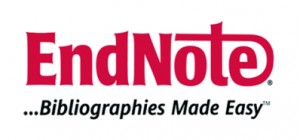ANALISIS PERSEPSI MASYARAKAT PENGGUNAAN LAYANAN TRANSAKSI DIGITAL (STUDI KASUS PADA APLIKASI BRIMO DI KELURAHAN ILIR KOTA GUNUNGSITOLI)
Abstract
Aplikasi BRImo merupakan Alat transaksi keuangan digital perbankan yang disediakan untuk mempermudah kelancaran transaksi dengan efektif dan efesien yang didukung dengan smartphone dan jaringan internet. Tujuan penelitian ini adalah untuk mengetahui persepsi masyarakat penggunaan layanan transaksi digital pada aplikasi BRImo di Kelurahan Ilir Kota Gunungsitoli. Metode yang digunakan dalam penelitian ini adalah Kualitatif Deskriptif. Hasil dari penelitian ini menunjukan bahwa persepsi masyarakat Kelurahan Ilir yang berjumlah 10 orang masyarakat yaitu menyambut baik aplikasi BRImo karena memberikan kemudahan dan kecepatan dalam melakukan transaksi keuangan. Keamanan data pada layanan aplikasi BRImo sudah sangat baik karena aplikasi BRImo memiliki enkripsi data otentikasi dua faktor. Namun sebagian pengguna tidak sepenuhnya memahami manfaat fitur yang ada pada Aplikasi BRimo. Tingkat kebutuhan pengguna yang berbeda dan kemampuan individu dalam menggunakan teknologi berbeda-beda. Penyedia layanan perlu melakukan literasi digital/edukasi agar fitur aplikasi BRImo ini tetap relevan dan memberikan manfaat pada masyarakat .
Kata kunci: Persepsi , Layanan Transaksi Digital, Fintech, BRImo
Full Text:
PDFReferences
Alaassar, A., Mention, A. L., & Aas, T. H. (2020). Exploring how social interactions influence regulators and innovators: The case of regulatory sandboxes. Technological Forecasting and Social Change, 160(August). https://doi.org/10.1016/j.techfore.2020.120257
Banna, H., Mia, M. A., Nourani, M., & Yarovaya, L. (2022). Fintech-based Financial Inclusion and Risk-taking of Microfinance Institutions (MFIs): Evidence from Sub-Saharan Africa. Finance Research Letters, 45(January 2021), 102149. https://doi.org/10.1016/j.frl.2021.102149
Bartlett, R., Morse, A., Stanton, R., & Wallace, N. (2022). Consumer-lending discrimination in the FinTech Era. Journal of Financial Economics, 143(1), 30–56. https://doi.org/10.1016/j.jfineco.2021.05.047
Boot, A., Hoffmann, P., Laeven, L., & Ratnovski, L. (2021). Fintech: what’s old, what’s new? Journal of Financial Stability, 53. https://doi.org/10.1016/j.jfs.2020.100836
Chang, V., Baudier, P., Zhang, H., Xu, Q., Zhang, J., & Arami, M. (2020). How Blockchain can impact financial services – The overview, challenges and recommendations from expert interviewees. Technological Forecasting and Social Change, 158(May), 120166. https://doi.org/10.1016/j.techfore.2020.120166
Emara, N., & Zhang, Y. (2021). The non-linear impact of digitization on remittances inflow: Evidence from the BRICS. Telecommunications Policy, 45(4), 102112. https://doi.org/10.1016/j.telpol.2021.102112
Giaretta, E., & Chesini, G. (2021). The determinants of debt financing: The case of fintech start-ups. Journal of Innovation and Knowledge, 6(4), 268–279. https://doi.org/10.1016/j.jik.2021.10.001
Pizzi, S., Corbo, L., & Caputo, A. (2021). Fintech and SMEs sustainable business models: Reflections and considerations for a circular economy. Journal of Cleaner Production, 281, 125217. https://doi.org/10.1016/j.jclepro.2020.125217
Su, F., & Xu, C. (2023). Curbing credit corruption in China: The role of FinTech. Journal of Innovation and Knowledge, 8(1), 100292. https://doi.org/10.1016/j.jik.2022.100292
Yang, X., Yang, J., Hou, Y., Li, S., & Sun, S. (2023). Gamification of mobile wallet as an unconventional innovation for promoting Fintech: An fsQCA approach. Journal of Business Research, 155(PA), 113406. https://doi.org/10.1016/j.jbusres.2022.113406
Ye, Y., Chen, S., & Li, C. (2022). Financial technology as a driver of poverty alleviation in China: Evidence from an innovative regression approach. Journal of Innovation and Knowledge, 7(1), 100164. https://doi.org/10.1016/j.jik.2022.100164
DOI: http://dx.doi.org/10.31604/jim.v8i1.2024.458-462
Article Metrics
Abstract view : 560 timesPDF - 175 times
Refbacks
- There are currently no refbacks.

This work is licensed under a Creative Commons Attribution-NonCommercial-ShareAlike 4.0 International License.

This work is licensed under a Creative Commons Attribution-NonCommercial-ShareAlike 4.0 International License.








